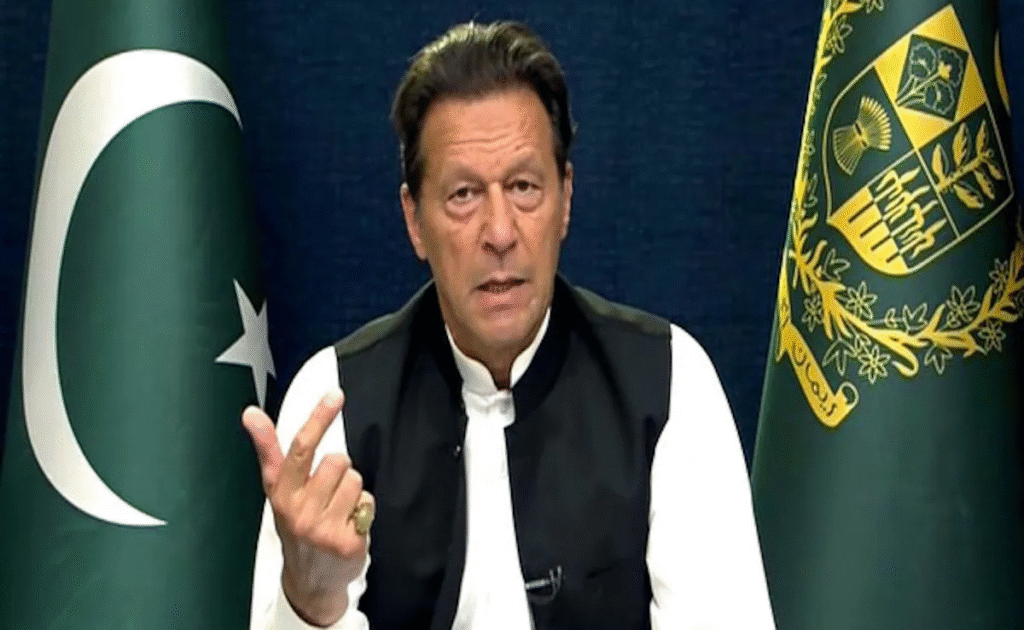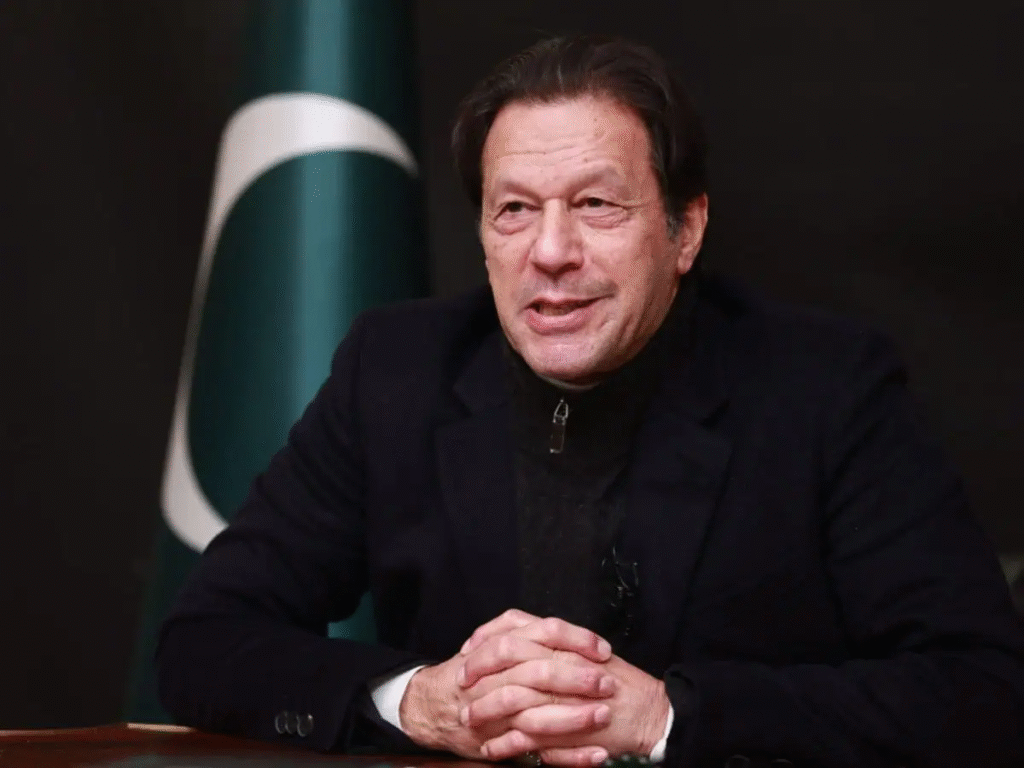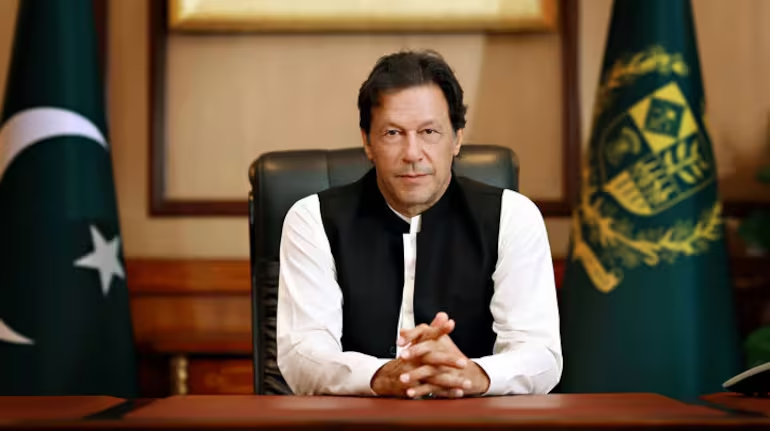
In an unprecedented and tragic turn of events, former Prime Minister of Pakistan, Imran Khan, has reportedly passed away while in judicial custody. The announcement has shocked the nation and sent reverberations across the globe. A towering figure in Pakistan’s political and social landscape, Khan’s sudden demise under such circumstances has ignited widespread speculation, outrage, and calls for accountability. The incident, as of now, remains shrouded in mystery, with the government pledging a comprehensive investigation to uncover the truth.
The Circumstances Leading to Imran Khan’s Arrest
The events leading to Khan’s arrest and subsequent death paint a complex and controversial picture. The former Prime Minister, who rose to political prominence as a reformist, had been facing mounting legal challenges over allegations of corruption, misuse of authority, and other charges. His vocal criticism of the ruling government and alleged interference in military affairs had made him a polarizing figure in Pakistan’s political sphere.
Khan was taken into judicial custody on [specific date], following accusations of financial misconduct linked to foreign funding for his political party, Pakistan Tehreek-e-Insaf (PTI). While Khan and his legal team vehemently denied these allegations, claiming they were politically motivated, his arrest led to mass protests across the nation. His supporters argued that the charges were part of a larger scheme to silence dissent and eliminate opposition.
Imran Khan’s Legacy: A Cricket Icon Turned Politician
Before delving deeper into the details of his death, it is essential to understand the legacy of Imran Khan. Born in Lahore on October 5, 1952, Khan first gained fame as an international cricketing star. He captained Pakistan to its first-ever Cricket World Cup victory in 1992, cementing his place as a national hero. His charismatic leadership on the field was later mirrored in his political career.
In 1996, Khan founded the PTI, a party committed to combating corruption and introducing systemic reforms. Although his early political journey was fraught with challenges, he eventually rose to power in 2018, becoming Pakistan’s 22nd Prime Minister. His tenure was marked by ambitious initiatives such as the Ehsaas Program for poverty alleviation and a focus on digital governance. However, critics accused his government of authoritarian tendencies and failing to deliver on key promises.
The Death in Custody: A Nation Demands Answers
Imran Khan’s death in judicial custody has raised serious questions about the conditions of his detention and the accountability of those responsible for his safety. Initial reports suggest that Khan was being held at [specific facility], a location known for its high-security arrangements. However, the exact cause of his death remains unclear, with conflicting accounts emerging from various sources.
According to some accounts, Khan suffered a fatal cardiac arrest, while others allege foul play. His legal team has called for an independent autopsy and an international inquiry, citing concerns about the impartiality of domestic investigations. PTI leaders have also claimed that Khan had repeatedly voiced concerns about threats to his life during his detention.
The Government’s Response
In the wake of widespread protests and international condemnation, the Pakistani government has promised a transparent and impartial investigation into the circumstances of Khan’s death. Prime Minister Shehbaz Sharif, addressing the nation, expressed his condolences to Khan’s family and supporters, stating that “no stone will be left unturned to uncover the truth.”
Interior Minister [Name] has announced the formation of a high-level commission, comprising senior judges and law enforcement officials, to examine the case. The commission’s mandate includes:
- Investigating the cause of Khan’s death.
- Reviewing the conditions of his detention.
- Identifying any lapses in security protocols.
- Recommending measures to prevent such incidents in the future.
Despite these assurances, public skepticism remains high, with many questioning the government’s ability to conduct an unbiased inquiry.
Public Reaction: Mourning and Outrage
The news of Imran Khan’s death has triggered a wave of grief and anger across Pakistan. Thousands of his supporters have taken to the streets, demanding justice and accountability. Vigils and memorial gatherings are being held nationwide, with participants expressing solidarity with Khan’s vision and legacy.
In urban centers like Lahore, Karachi, and Islamabad, protests have turned violent, with reports of clashes between demonstrators and law enforcement agencies. Social media platforms are inundated with messages of condolence, tributes, and calls for action. The hashtag #JusticeForImranKhan has been trending globally, reflecting the widespread outrage over the incident.
International Reaction and Calls for Accountability
Imran Khan’s death has drawn strong reactions from the international community. Leaders from various countries have expressed shock and extended their condolences to Khan’s family and supporters. The United Nations and international human rights organizations have called for an independent and transparent investigation.
[Specific leader’s name], the Secretary-General of the United Nations, stated: “The death of a former head of state in custody raises serious questions about the conditions of detention and adherence to human rights norms. We urge the Pakistani authorities to ensure a thorough and impartial investigation.”
Human Rights Watch and Amnesty International have also issued statements, emphasizing the need for accountability and justice. Some Western governments have hinted at reviewing their diplomatic and economic relations with Pakistan, depending on the outcome of the investigation.
The Role of the Media and Public Discourse

The Pakistani media has been at the forefront of covering this tragic development, with extensive debates on television channels, newspapers, and online platforms. While some outlets have focused on Khan’s legacy and contributions, others have raised uncomfortable questions about the political dynamics that may have led to his death.
Social media has emerged as a powerful tool for mobilizing public opinion, with millions of users sharing their perspectives, memories, and demands for justice. However, concerns about misinformation and the spread of conspiracy theories have also surfaced, underscoring the need for responsible journalism and fact-checking.
Political Implications: A Nation at a Crossroads
Imran Khan’s death comes at a time of deep political polarization in Pakistan. The incident has further strained relations between the ruling government and the opposition, with accusations flying from both sides. PTI leaders have alleged that Khan’s arrest and subsequent death were part of a larger conspiracy to undermine democratic principles.
The government, on the other hand, has accused PTI of exploiting the tragedy for political gain. The situation has created an atmosphere of uncertainty and unrest, with potential implications for Pakistan’s stability and governance.
Imran Khan’s Vision and the Way Forward
As Pakistan grapples with the aftermath of Khan’s death, it is essential to reflect on his vision and the values he championed. Throughout his political career, Khan emphasized the importance of justice, accountability, and national self-reliance. While his tenure as Prime Minister was not without controversies, his commitment to these ideals inspired millions.
Moving forward, Pakistan must honor Khan’s legacy by ensuring transparency, upholding the rule of law, and fostering a culture of accountability. The investigation into his death must be thorough and impartial, providing closure to his family, supporters, and the nation at large.
Conclusion: A Tragic Loss for Pakistan and the World
Imran Khan’s death in custody marks a dark chapter in Pakistan’s history, raising critical questions about the state of democracy, justice, and human rights in the country. As the nation mourns the loss of a leader who left an indelible mark on its political and social fabric, the world watches closely, hoping for accountability and reform.
The road ahead will not be easy, but Pakistan has an opportunity to turn this tragedy into a turning point. By addressing the systemic issues that led to Khan’s untimely demise and committing to a more just and inclusive society, the nation can honor his memory and build a better future for generations to come.

